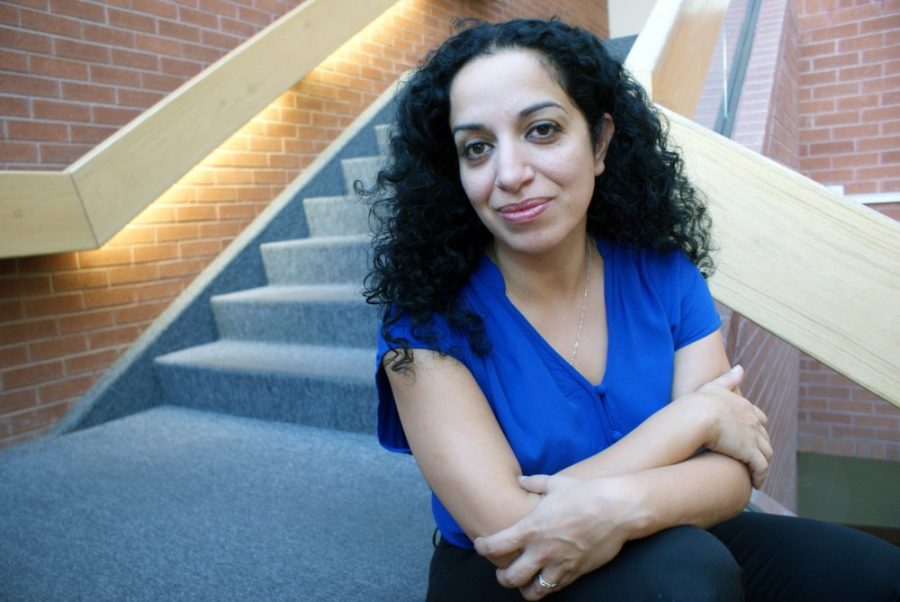Photography professor Sama Alshaibi never intended to pursue a career in teaching.
But earlier this month, she was one of four recipients of the 1885 Society of Distinguished Scholars Award for her artwork that addresses issues of oppression in her home country.
As a child, Alshaibi lived in Iraq during the Iraq-Iran War, and as a teenager, her family relocated to the United States during the Gulf War.
“I watched the poorly executed news about the region I was from,” Alshaibi said. “[I felt like] there was such a poor understanding of why wars happen and who my people are.”
Alshaibi said she believed that becoming a war photographer would help her translate the reality of Iraqis to a mainstream audience.
During her time as an undergraduate at Columbia College Chicago, Alshaibi found a mentor in Pulitzer Prize-winning photographer John H. White. She said he helped her realize war photography was not her only outlet for discussing conflict and oppression.
“I realized over time that I could make images about conflict without photographing war as an outsider. I could put these ideas in a more subjective form that was maybe stronger — and perhaps more honest.”
Building off of her own experiences with tyranny and oppression, and articulating the plight of her people, Alshaibi began to find her artistic voice outside of photojournalism.
By letting go of the objective view she had to take with photojournalism and embracing her own personal identity and experiences with conflict and displacement, Alshaibi said she was able to have a more honest relationship with her art.
“I drew on my body, the walls of my small studio, collaged, performed the issues I was interested in — and then I photographed them,” she said.
After earning her master’s degree in art from the University of Colorado at Boulder, she said she intended to be an independent artist. However, her career path changed and brought her to the UA where she now teaches photography to undergraduates.
She said she didn’t initially want to be a professor but her perspective on teaching changed after her first day of class.
“My students and I opened up to each other about what happened in our lives as Americans, as ‘others’ and as humans,” she said. “I found that being a mentor and a teacher as an artist was a life that I could dedicate myself to. There is nothing more exhausting and rewarding as teaching.”
Hailey Eisenbach, a studio arts photography senior, is a student in Alshaibi’s advanced photography class.
“My initial impression of Sama was that she was a very strong artist with a big personality,” Eisenbach said. “She knows exactly what she wants to say through her art and is really knowledgeable.”
Eisenbach added that Alshaibi’s passion is evident even in the classroom.
Alshaibi said her experience with teaching and mentoring has been incredibly moving but added that her time devoted to the classroom hasn’t removed her from her art. Alshaibi said she hopes to continue facilitating an open discussion on issues such as gender and oppression.
“My biggest hope is that [my art] asks questions and helps make issues that don’t seem applicable to one’s personal life relatable,” she said. “The human condition of suffering is not something outside of one’s self. We are all implicated in the suffering of humanity.”









